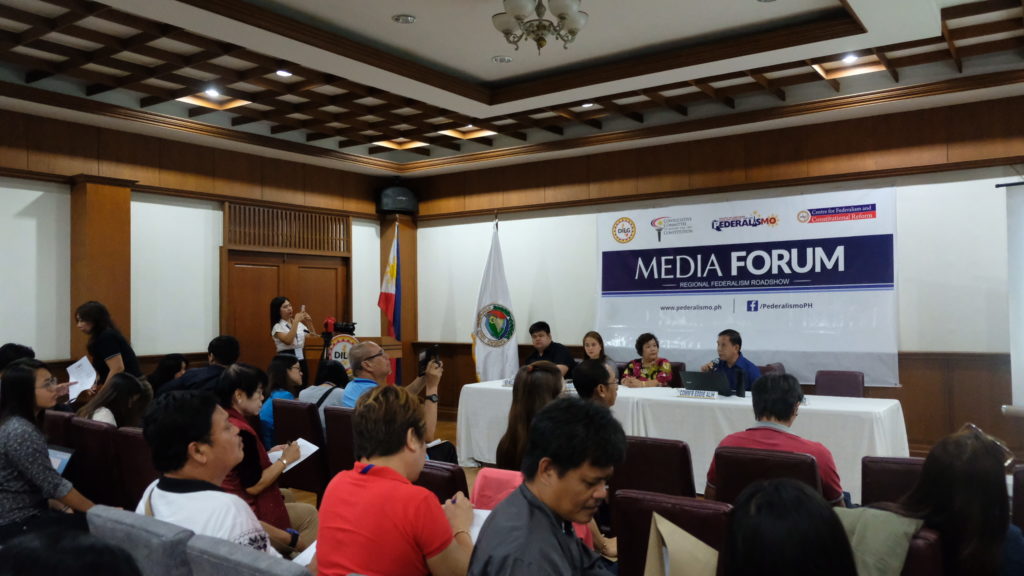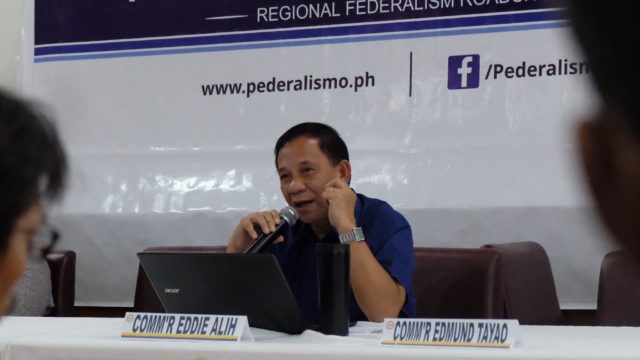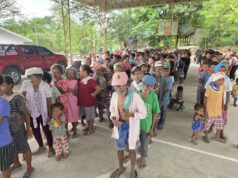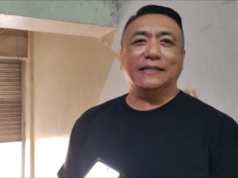
(Consultative Committee to Review the 1987 Constitution Commissioner Eddie Alih discusses to members of the media the social and political reforms under the proposed federal Constitution during the Media Forum on Federalism held in Pampanga. Mar Jay S. Delas Alas/PIA 3)
CITY OF SAN FERNANDO — Members of the Consultative Committee to Review the 1987 Constitution (ConCom) discussed Wednesday to members of the media an overview of the proposed Federal Constitution.
ConCom Commissioner Eddie Alih said a shift from unitary to federal system of government is needed because federalism is touching the lives of the people, especially the least, the last and the lost.
“It touches the least because they have less in life; the last because they are hard to reach; the lost because they do not know what and how to alleviate their poor socio-economic conditions. Only then, government service finds its meaning,” he said.
In his discussion, Alih said Federalism aims to make social and political reforms through expanded civil and political rights.
“Under Article 3, section 26-27 of the proposed constitution, the government aims to address most of the nation’s problems including high poverty incidence and corruption by giving them demandable social economic rights when it comes to food, education, housing, healthcare and livelihood opportunities,” Alih said.
Aside from economic rights, the proposed Constitution also include demandable environmental rights where the people can seek court relief to stop activities that damage the environment, similar to what happened in Boracay.
The professor added that part of the social reforms under the proposed federal government include providing access to free legal assistance and protecting the poor against employment discrimination, especially the Overseas Filipino Workers and persons with disabilities.
In terms of the political reforms, Alih said there will be non-centralization of powers because resources will be distributed between the Federal Government and the Federated Regions.
“Each Federated Region will be headed by a Regional Governor and Deputy Governor elected in tandem by the legislative assembly from among its members. They both serve for four years with one re-election” Alih explained.
Moreover, the Regional Assembly will be the legislative branch of the Federated Region wherein half will be elected one each per province and highly urbanized city and the other half to be elected regionwide by proportional party representation.
The Media Forum was part of the two-day Federalism Roadshow which was organized by the Department of the Interior and Local Government in partnership with the provincial government of Pampanga, city government of San Fernando, and Philippine Information Agency. (PIA 3)





